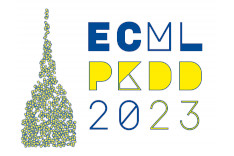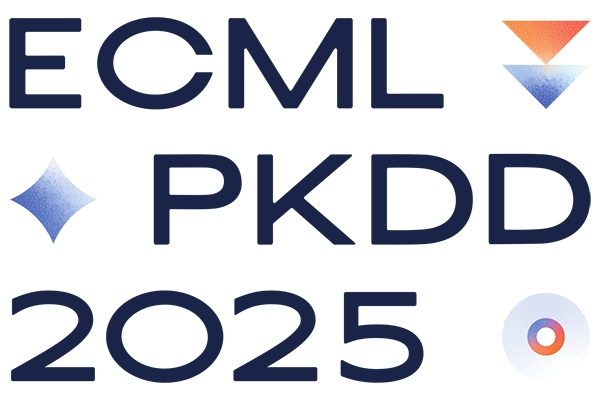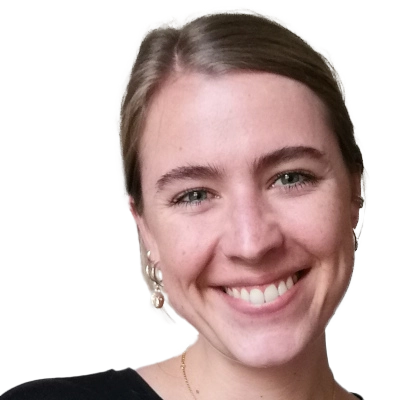15.09.2023

MCML Researchers With 15 Papers at ECML-PKDD 2023
European Conference on Machine Learning and Principles and Practice of Knowledge Discovery in Database (ECML-PKDD 2023). Turin, Italy, 18.09.2023–22.09.2023
We are happy to announce that MCML researchers are represented with 15 papers at ECML-PKDD 2023. Congrats to our researchers!
Main Track (9 papers)
Interpretable Regional Descriptors: Hyperbox-Based Local Explanations.
ECML-PKDD 2023 - European Conference on Machine Learning and Principles and Practice of Knowledge Discovery in Databases . Turin, Italy, Sep 18-22, 2023. DOI
Abstract
This work introduces interpretable regional descriptors, or IRDs, for local, model-agnostic interpretations. IRDs are hyperboxes that describe how an observation’s feature values can be changed without affecting its prediction. They justify a prediction by providing a set of “even if” arguments (semi-factual explanations), and they indicate which features affect a prediction and whether pointwise biases or implausibilities exist. A concrete use case shows that this is valuable for both machine learning modelers and persons subject to a decision. We formalize the search for IRDs as an optimization problem and introduce a unifying framework for computing IRDs that covers desiderata, initialization techniques, and a post-processing method. We show how existing hyperbox methods can be adapted to fit into this unified framework. A benchmark study compares the methods based on several quality measures and identifies two strategies to improve IRDs.
MCML Authors

Susanne Dandl
Dr.
* Former Member
Improving Few-Shot Inductive Learning on Temporal Knowledge Graphs Using Confidence-Augmented Reinforcement Learning.
ECML-PKDD 2023 - European Conference on Machine Learning and Principles and Practice of Knowledge Discovery in Databases . Turin, Italy, Sep 18-22, 2023. DOI GitHub
Abstract
Temporal knowledge graph completion (TKGC) aims to predict the missing links among the entities in a temporal knowledge graph (TKG). Most previous TKGC methods only consider predicting the missing links among the entities seen in the training set, while they are unable to achieve great performance in link prediction concerning newly-emerged unseen entities. Recently, a new task, i.e., TKG few-shot out-of-graph (OOG) link prediction, is proposed, where TKGC models are required to achieve great link prediction performance concerning newly-emerged entities that only have few-shot observed examples. In this work, we propose a TKGC method FITCARL that combines few-shot learning with reinforcement learning to solve this task. In FITCARL, an agent traverses through the whole TKG to search for the prediction answer. A policy network is designed to guide the search process based on the traversed path. To better address the data scarcity problem in the few-shot setting, we introduce a module that computes the confidence of each candidate action and integrate it into the policy for action selection. We also exploit the entity concept information with a novel concept regularizer to boost model performance. Experimental results show that FITCARL achieves stat-of-the-art performance on TKG few-shot OOG link prediction.
MCML Authors
DiffusAL: Coupling Active Learning with Graph Diffusion for Label-Efficient Node Classification.
ECML-PKDD 2023 - European Conference on Machine Learning and Principles and Practice of Knowledge Discovery in Databases . Turin, Italy, Sep 18-22, 2023. DOI
Abstract
Node classification is one of the core tasks on attributed graphs, but successful graph learning solutions require sufficiently labeled data. To keep annotation costs low, active graph learning focuses on selecting the most qualitative subset of nodes that maximizes label efficiency. However, deciding which heuristic is best suited for an unlabeled graph to increase label efficiency is a persistent challenge. Existing solutions either neglect aligning the learned model and the sampling method or focus only on limited selection aspects. They are thus sometimes worse or only equally good as random sampling. In this work, we introduce a novel active graph learning approach called DiffusAL, showing significant robustness in diverse settings. Toward better transferability between different graph structures, we combine three independent scoring functions to identify the most informative node samples for labeling in a parameter-free way: i) Model Uncertainty, ii) Diversity Component, and iii) Node Importance computed via graph diffusion heuristics. Most of our calculations for acquisition and training can be pre-processed, making DiffusAL more efficient compared to approaches combining diverse selection criteria and similarly fast as simpler heuristics. Our experiments on various benchmark datasets show that, unlike previous methods, our approach significantly outperforms random selection in 100% of all datasets and labeling budgets tested.
MCML Authors
How to Overcome Confirmation Bias in Semi-Supervised Image Classification by Active Learning.
ECML-PKDD 2023 - European Conference on Machine Learning and Principles and Practice of Knowledge Discovery in Databases . Turin, Italy, Sep 18-22, 2023. DOI
Abstract
Do we need active learning? The rise of strong deep semi-supervised methods raises doubt about the usability of active learning in limited labeled data settings. This is caused by results showing that combining semi-supervised learning (SSL) methods with a random selection for labeling can outperform existing active learning (AL) techniques. However, these results are obtained from experiments on well-established benchmark datasets that can overestimate the external validity. However, the literature lacks sufficient research on the performance of active semi-supervised learning methods in realistic data scenarios, leaving a notable gap in our understanding. Therefore we present three data challenges common in real-world applications: between-class imbalance, within-class imbalance, and between-class similarity. These challenges can hurt SSL performance due to confirmation bias. We conduct experiments with SSL and AL on simulated data challenges and find that random sampling does not mitigate confirmation bias and, in some cases, leads to worse performance than supervised learning. In contrast, we demonstrate that AL can overcome confirmation bias in SSL in these realistic settings. Our results provide insights into the potential of combining active and semi-supervised learning in the presence of common real-world challenges, which is a promising direction for robust methods when learning with limited labeled data in real-world applications.
MCML Authors
Rectifying Bias in Ordinal Observational Data Using Unimodal Label Smoothing.
ECML-PKDD 2023 - European Conference on Machine Learning and Principles and Practice of Knowledge Discovery in Databases . Turin, Italy, Sep 18-22, 2023. DOI
Abstract
This paper proposes a novel approach for modeling observational data in the form of expert ratings, which are commonly given on an ordered (numerical or ordinal) scale. In practice, such ratings are often biased, due to the expert’s preferences, psychological effects, etc. Our approach aims to rectify these biases, thereby preventing machine learning methods from transferring them to models trained on the data. To this end, we make use of so-called label smoothing, which allows for redistributing probability mass from the originally observed rating to other ratings, which are considered as possible corrections. This enables the incorporation of domain knowledge into the standard cross-entropy loss and leads to flexibly configurable models. Concretely, our method is realized for ordinal ratings and allows for arbitrary unimodal smoothings using a binary smoothing relation. Additionally, the paper suggests two practically motivated smoothing heuristics to address common biases in observational data, a time-based smoothing to handle concept drift and a class-wise smoothing based on class priors to mitigate data imbalance. The effectiveness of the proposed methods is demonstrated on four real-world goodwill assessment data sets of a car manufacturer with the aim of automating goodwill decisions. Overall, this paper presents a promising approach for modeling ordinal observational data that can improve decision-making processes and reduce reliance on human expertise.
MCML Authors
k-SubMix: Common Subspace Clustering on Mixed-Type Data.
ECML-PKDD 2023 - European Conference on Machine Learning and Principles and Practice of Knowledge Discovery in Databases . Turin, Italy, Sep 18-22, 2023. DOI
Abstract
Clustering heterogeneous data is an ongoing challenge in the data mining community. The most prevalent clustering methods are designed to process datasets with numerical features only, but often datasets consist of mixed numerical and categorical features. This requires new approaches capable of handling both kinds of data types. Further, the most relevant cluster structures are often hidden in only a few features. Thus, another key challenge is to detect those specific features automatically and abandon features not relevant for clustering. This paper proposes the subspace mixed-type clustering algorithm k-SubMix, which tackles both challenges. Its cost function can handle both numerical and categorical features while simultaneously identifying those with the biggest impact for a high-quality clustering result. Unlike other subspace mixed-type clustering methods, k-SubMix preserves inter-cluster comparability, as it is the first mixed-type approach that defines a common subspace for all clusters. Extensive experiments show that k-SubMix outperforms competitive methods and reduces the data’s complexity by a simultaneous dimensionality reduction.
MCML Authors

Mauritius Klein
* Former Member

Collin Leiber
Dr.
* Former Member
iSAGE: An Incremental Version of SAGE for Online Explanation on Data Streams.
ECML-PKDD 2023 - European Conference on Machine Learning and Principles and Practice of Knowledge Discovery in Databases . Turin, Italy, Sep 18-22, 2023. DOI
Abstract
Existing methods for explainable artificial intelligence (XAI), including popular feature importance measures such as SAGE, are mostly restricted to the batch learning scenario. However, machine learning is often applied in dynamic environments, where data arrives continuously and learning must be done in an online manner. Therefore, we propose iSAGE, a time- and memory-efficient incrementalization of SAGE, which is able to react to changes in the model as well as to drift in the data-generating process. We further provide efficient feature removal methods that break (interventional) and retain (observational) feature dependencies. Moreover, we formally analyze our explanation method to show that iSAGE adheres to similar theoretical properties as SAGE. Finally, we evaluate our approach in a thorough experimental analysis based on well-established data sets and data streams with concept drift.
MCML Authors
ActiveGLAE: A Benchmark for Deep Active Learning with Transformers.
ECML-PKDD 2023 - European Conference on Machine Learning and Principles and Practice of Knowledge Discovery in Databases . Turin, Italy, Sep 18-22, 2023. DOI
Abstract
Deep active learning (DAL) seeks to reduce annotation costs by enabling the model to actively query instance annotations from which it expects to learn the most. Despite extensive research, there is currently no standardized evaluation protocol for transformer-based language models in the field of DAL. Diverse experimental settings lead to difficulties in comparing research and deriving recommendations for practitioners. To tackle this challenge, we propose the ACTIVEGLAE benchmark, a comprehensive collection of data sets and evaluation guidelines for assessing DAL. Our benchmark aims to facilitate and streamline the evaluation process of novel DAL strategies. Additionally, we provide an extensive overview of current practice in DAL with transformer-based language models. We identify three key challenges - data set selection, model training, and DAL settings - that pose difficulties in comparing query strategies. We establish baseline results through an extensive set of experiments as a reference point for evaluating future work. Based on our findings, we provide guidelines for researchers and practitioners.
MCML Authors
Towards Efficient MCMC Sampling in Bayesian Neural Networks by Exploiting Symmetry.
ECML-PKDD 2023 - European Conference on Machine Learning and Principles and Practice of Knowledge Discovery in Databases . Turin, Italy, Sep 18-22, 2023. Best Paper Award. DOI
Abstract
Bayesian inference in deep neural networks is challenging due to the high-dimensional, strongly multi-modal parameter posterior density landscape. Markov chain Monte Carlo approaches asymptotically recover the true posterior but are considered prohibitively expensive for large modern architectures. Local methods, which have emerged as a popular alternative, focus on specific parameter regions that can be approximated by functions with tractable integrals. While these often yield satisfactory empirical results, they fail, by definition, to account for the multi-modality of the parameter posterior. Such coarse approximations can be detrimental in practical applications, notably safety-critical ones. In this work, we argue that the dilemma between exact-but-unaffordable and cheap-but-inexact approaches can be mitigated by exploiting symmetries in the posterior landscape. These symmetries, induced by neuron interchangeability and certain activation functions, manifest in different parameter values leading to the same functional output value. We show theoretically that the posterior predictive density in Bayesian neural networks can be restricted to a symmetry-free parameter reference set. By further deriving an upper bound on the number of Monte Carlo chains required to capture the functional diversity, we propose a straightforward approach for feasible Bayesian inference. Our experiments suggest that efficient sampling is indeed possible, opening up a promising path to accurate uncertainty quantification in deep learning.
MCML Authors
Workshops (6 papers)
Towards Enhancing Deep Active Learning with Weak Supervision and Constrained Clustering.
IAL @ECML-PKDD 2023 - 7th International Workshop on Interactive Adaptive Learning at the European Conference on Machine Learning and Principles and Practice of Knowledge Discovery in Databases . Turin, Italy, Sep 18-22, 2023. PDF
Abstract
Three fields revolving around the question of how to cope with limited amounts of labeled data are Deep Active Learning (DAL), deep Constrained Clustering (CC), and Weakly Supervised Learning (WSL). DAL tackles the problem by adaptively posing the question of which data samples to annotate next in order to achieve the best incremental learning improvement, although it suffers from several limitations that hinder its deployment in practical settings. We point out how CC algorithms and WSL could be employed to overcome these limitations and increase the practical applicability of DAL research. Specifically, we discuss the opportunities to use the class discovery capabilities of CC and the possibility of further reducing human annotation efforts by utilizing WSL. We argue that the practical applicability of DAL algorithms will benefit from employing CC and WSL methods for the learning and labeling process. We inspect the overlaps between the three research areas and identify relevant and exciting research questions at the intersection of these areas.
MCML Authors

Jann Goschenhofer
Dr.
* Former Member
Shapley-Based Feature Selection for Online Algorithm Selection.
DynXAI @ECML-PKDD 2023 - Workshop on Explainable Artificial Intelligence: From Static to Dynamic at the European Conference on Machine Learning and Principles and Practice of Knowledge Discovery in Databases . Turin, Italy, Sep 18-22, 2023. DOI
Abstract
Online algorithm selection concerns the task of designing a dynamic algorithm selector that observes sequentially arriving problem instances of an algorithmic problem class for which it must select a suitable algorithm from a given pool of candidate algorithms. Typically the suitability of a candidate algorithm is determined by its average runtime for solving a problem instance. Recent work has shown that multi-armed bandit algorithms can be leveraged for specifying a suitable algorithm selector by taking available feature information of problem instances into account. In this paper, we investigate whether the performance of these bandit-based selection strategies can be further improved by incorporating feature selection. To this end, we use the concept of Shapley values from cooperative game theory to specify the contribution of the features with respect to the suitability of the candidate algorithms and adapt the bandit-based selection strategies to consider only features with the highest contribution. We present two different Shapley value-based approaches and show empirically that UCB-based bandit selection strategies can be improved, while Thompson sampling-based strategies actually deteriorate in terms of average runtime.
MCML Authors

Viktor Bengs
Dr.
On the challenges and practices of reinforcement learning from real human feedback.
HLDM @ECML-PKDD 2023 - 1st Workshop on Hybrid Human-Machine Learning and Decision Making at the European Conference on Machine Learning and Principles and Practice of Knowledge Discovery in Databases . Turin, Italy, Sep 18-22, 2023. DOI
Abstract
Reinforcement learning from human feedback (RLHF) is a variant of reinforcement learning (RL) that does not require an engineered reward function but instead learns from human feedback. Due to its increasing popularity, various authors have studied how to learn an accurate reward model from only few samples, making optimal use of this feedback. Because of the cost and complexity of user studies, however, this research is often conducted with synthetic human feedback. Such feedback can be generated by evaluating behavior based on ground-truth rewards which are available for some benchmark tasks. While this setting can help evaluate some aspects of RLHF, it differs from practical settings in which synthetic feedback is not available. Working with real human feedback brings additional challenges that cannot be observed with synthetic feedback, including fatigue, inter-rater inconsistencies, delay, misunderstandings, and modality-dependent difficulties. We describe and discuss some of these challenges together with current practices and opportunities for further research in this paper.
MCML Authors
How Different Is Stereotypical Bias Across Languages?
BIAS @ECML-PKDD 2023 - 3rd Workshop on Bias and Fairness in AI at the European Conference on Machine Learning and Principles and Practice of Knowledge Discovery in Databases . Turin, Italy, Sep 18-22, 2023. DOI
Abstract
Recent studies have demonstrated how to assess the stereotypical bias in pre-trained English language models. In this work, we extend this branch of research in multiple different dimensions by systematically investigating (a) mono- and multilingual models of (b) different underlying architectures with respect to their bias in (c) multiple different languages. To that end, we make use of the English StereoSet data set (Nadeem et al., 2021), which we semi-automatically translate into German, French, Spanish, and Turkish. We find that it is of major importance to conduct this type of analysis in a multilingual setting, as our experiments show a much more nuanced picture as well as notable differences from the English-only analysis. The main takeaways from our analysis are that mGPT-2 (partly) shows surprising anti-stereotypical behavior across languages, English (monolingual) models exhibit the strongest bias, and the stereotypes reflected in the data set are least present in Turkish models. Finally, we release our codebase alongside the translated data sets and practical guidelines for the semi-automatic translation to encourage a further extension of our work to other languages.
MCML Authors
Identifying Trends in Feature Attributions During Training of Neural Networks.
Uncertainty meets Explainability @ECML-PKDD 2023 - Workshop Uncertainty meets Explainability in Machine Learning at the European Conference on Machine Learning and Principles and Practice of Knowledge Discovery in Databases . Turin, Italy, Sep 18-22, 2023. DOI
Abstract
This study investigates the evolving dynamics of commonly used feature attribution (FA) values during training of neural networks. As models transition from a state of high uncertainty to low uncertainty, we show that the features’ significance also changes, which is inline with the general learning theory of deep neural networks. During model training, we compute FA scores through Layer-wise Relevance Propagation (LRP) and Gradient-weighted Class Activation Mapping (Grad-CAM), which are selected for their efficiency and speed of computation. We summarize the attribution scores in terms of the sum of the absolute values of FA scores and their entropy. We further analyze these summary scores in relation to the models’ generalization capabilities. The analysis identifies trends where FA values increase in magnitude while entropy decreases during the training process, regardless of model generalization, suggesting independence of overfitting. This research offers a unique view on the application of FA methods in explainable artificial intelligence (XAI) and raises intriguing questions about their behavior across varying model architectures and datasets, which may have implications for future work combining XAI and uncertainty estimation in machine learning.
MCML Authors
How Prevalent is Gender Bias in ChatGPT? - Exploring German and English ChatGPT Responses.
BDCA @ECML-PKDD 2023 - 1st Workshop on Biased Data in Conversational Agents at the European Conference on Machine Learning and Principles and Practice of Knowledge Discovery in Databases . Turin, Italy, Sep 18-22, 2023. DOI
Abstract
With the introduction of ChatGPT, OpenAI made large language models (LLM) accessible to users with limited IT expertise. However, users with no background in natural language processing (NLP) might lack a proper understanding of LLMs. Thus the awareness of their inherent limitations, and therefore will take the systems’ output at face value. In this paper, we systematically analyse prompts and the generated responses to identify possible problematic issues with a special focus on gender biases, which users need to be aware of when processing the system’s output. We explore how ChatGPT reacts in English and German if prompted to answer from a female, male, or neutral perspective. In an in-depth investigation, we examine selected prompts and analyse to what extent responses differ if the system is prompted several times in an identical way. On this basis, we show that ChatGPT is indeed useful for helping non-IT users draft texts for their daily work. However, it is absolutely crucial to thoroughly check the system’s responses for biases as well as for syntactic and grammatical mistakes.
MCML Authors
15.09.2023
Related

22.09.2025
Predicting Health With AI - With Researcher Simon Schallmoser
Simon Schallmoser uses AI to predict health risks, detect low blood sugar in drivers, and advance personalized, safer healthcare.

19.09.2025
MCML Researchers With 24 Papers at MICCAI 2025
28th International Conference on Medical Image Computing and Computer Assisted Intervention (MICCAI 2025). Daejeon, Republic of Korea, 23.09.2025 - 27.09.2025

15.09.2025
Robots Seeing in the Dark - With Researcher Yannick Burkhardt
Yannick Burkhardt erforscht Event-Kameras, die Robotern ermöglichen, blitzschnell zu reagieren und auch im Dunkeln zu sehen.

12.09.2025
MCML Researchers With Eight Papers at ECML-PKDD 2025
European Conference on Machine Learning and Principles and Practice of Knowledge Discovery in Database (ECML-PKDD 2025). Porto, Portugal, 15.09.2025 - 19.09.2025





















